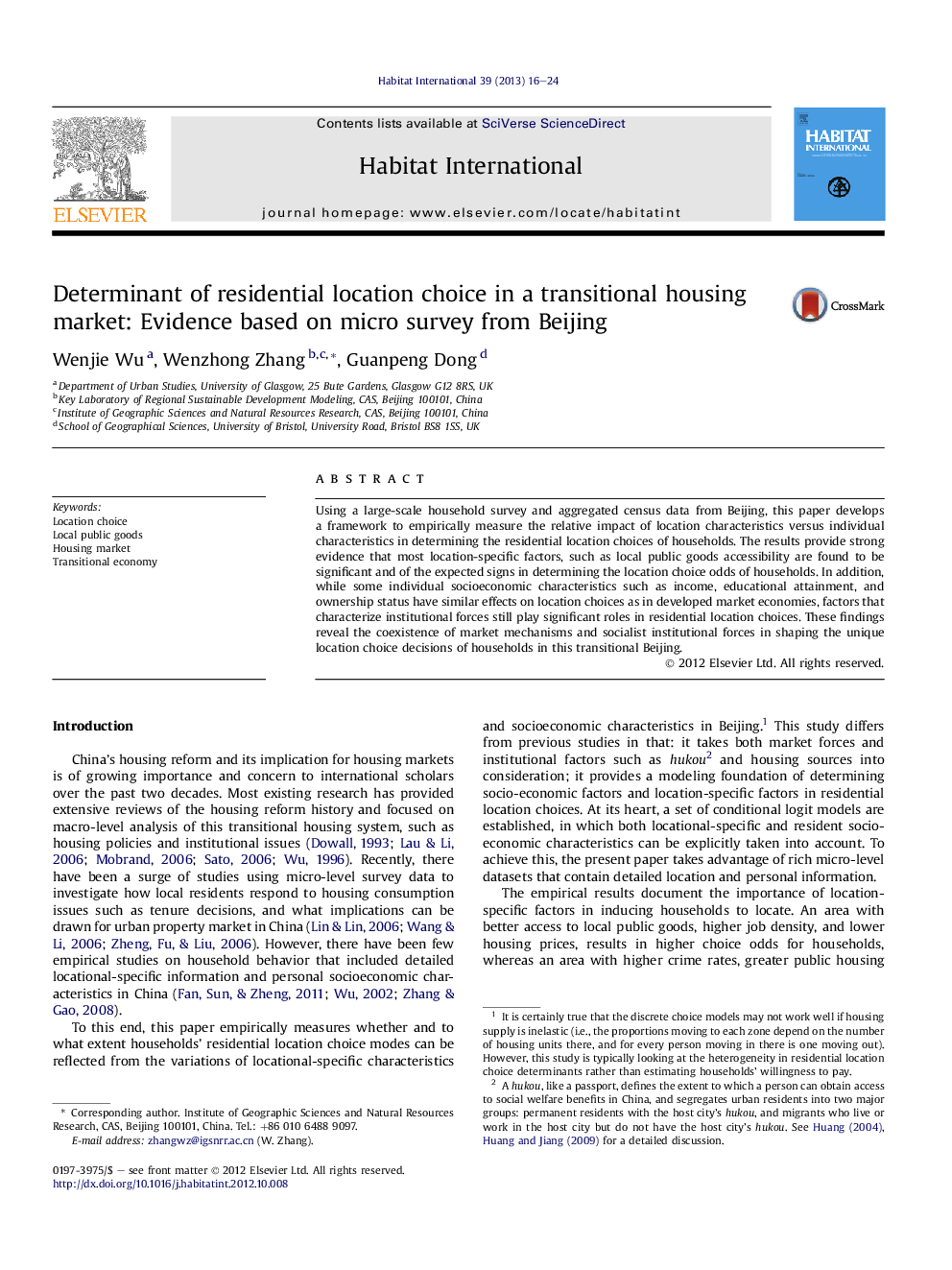| Article ID | Journal | Published Year | Pages | File Type |
|---|---|---|---|---|
| 1048219 | Habitat International | 2013 | 9 Pages |
Using a large-scale household survey and aggregated census data from Beijing, this paper develops a framework to empirically measure the relative impact of location characteristics versus individual characteristics in determining the residential location choices of households. The results provide strong evidence that most location-specific factors, such as local public goods accessibility are found to be significant and of the expected signs in determining the location choice odds of households. In addition, while some individual socioeconomic characteristics such as income, educational attainment, and ownership status have similar effects on location choices as in developed market economies, factors that characterize institutional forces still play significant roles in residential location choices. These findings reveal the coexistence of market mechanisms and socialist institutional forces in shaping the unique location choice decisions of households in this transitional Beijing.
► We model the determinants of residential location choice in a transitional economy of China. ► We clarify the importance of considering social-spatialdifferentiation in explaining the residential choice behaviors. ► The residential location choice patterns depend on the market mechanisms and socialist institutional forces in China.
